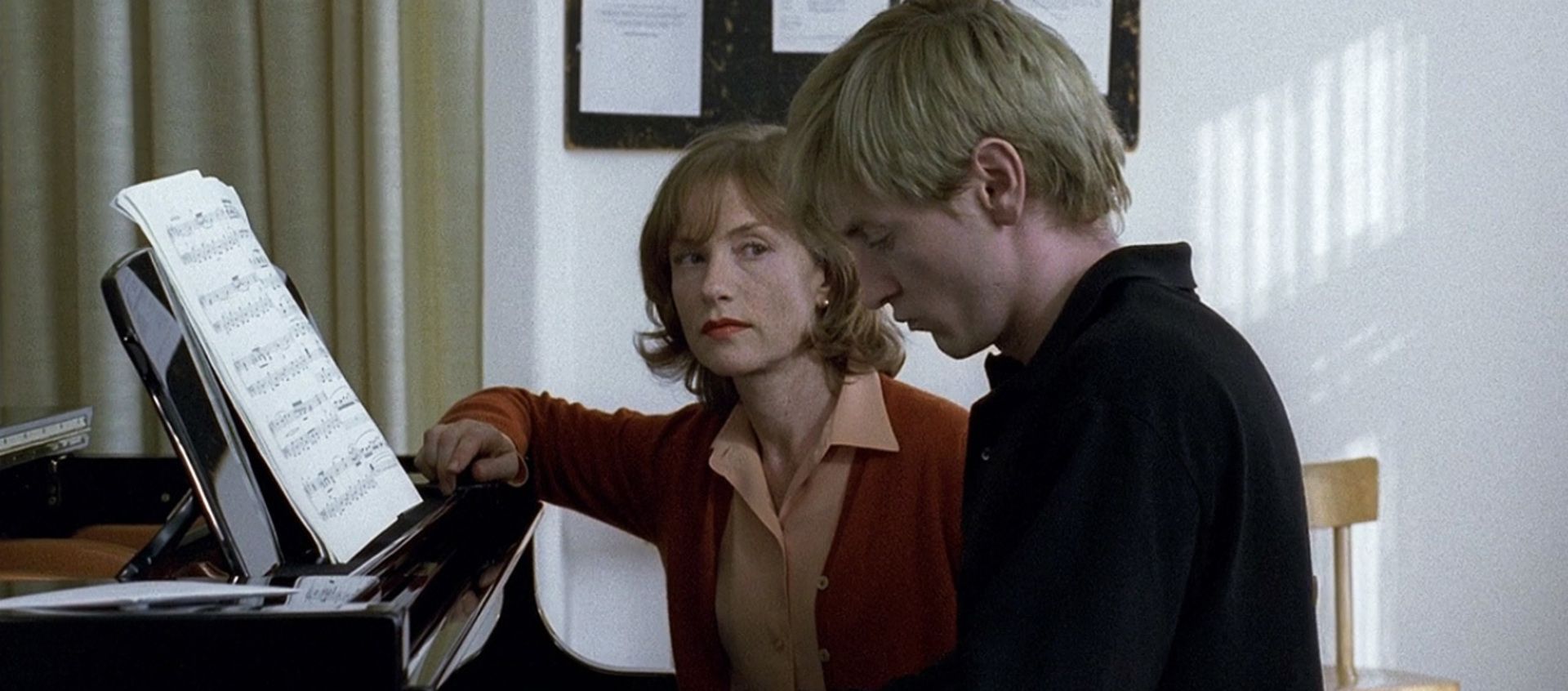
The Piano Teacher: A Neurotic in a Perverse World
The Piano Teacher, written by Elfriede Jelinek and directed by Michael Haneke, feels almost tailor-made for psychoanalytic analysis. Unsurprisingly, a quick search reveals countless interpretations, particularly from Lacanian perspectives. Yet, most assume that Erika, the protagonist, is a pervert because she exhibits classic perverse symptoms. This conflation of behavior with psychic structure overlooks a critical point: Erika lacks the defining traits of Lacanian perversion.
Before her sadomasochistic fantasies are revealed, Erika appears overtly “repressed” and “anal-retentive.” This alone should raise doubts. Perverts, in the Lacanian sense, do not repress; they “disavow.” Where the neurotic succumbs to the prohibitions of the Law, the pervert knowingly stages transgressions, sustaining the Law through defiance. This structure often manifests as supreme confidence—an unapologetic stance well-suited to roles like museum curators, literary agents, or professors at elite conservatories like Erika. They derive jouissance from positioning themselves as gatekeepers, frustrating others under the guise of authority.
Erika, however, is tragic precisely because she is not a true pervert. She performs the role, cold, domineering, exacting, but beneath this facade lies a deeply neurotic subject, fractured by repression, shame, and anxiety. By the film’s end, we witness the inevitable collapse of this perverse masquerade.
In contrast, Erika’s mother embodies the Lacanian perverse structure far more convincingly. She imposes an absurdly invasive relationship on her daughter without the slightest trace of guilt. Her enjoyment is obvious; she derives jouissance from being the living embodiment of the Law that governs Erika’s every move. There is no repression here, only disavowal, the hallmark of perversion.
Raised under the regime of a perverse other, Erika naturally attempts to mimic her mother’s psychic structure. The gestures and symptoms of perversion are familiar territory, and by adopting them, Erika hopes to attain the same guiltless mastery over desire. But as a neurotic, she cannot escape her divided subjectivity. The scene where she confronts a student caught in a porn shop is telling: she demands to know why he feels ashamed, projecting her own internal conflict outward. Her defiant posture is hollow; beneath it, she shares the very shame she pretends to reject. Her question is less an accusation than a desperate attempt at self-persuasion.
Compounding this struggle is the environment she inhabits. The conservatory is full of those who thrive on gatekeeping, individuals who take pleasure in wielding authority, preventing others from achieving satisfaction. It’s a perverse world, and Erika, lacking any alternative framework, clings to it as the only conceivable mode of existence.
When Walter ultimately rejects her, the fragile scaffolding of her perverse persona crumbles. Her neurotic core surfaces: tears, desperation, and a clinging attachment to fantasies she no longer controls. The pivotal moment arrives when Walter enacts her scripted fantasy. Rather than delivering jouissance, it traumatizes her. Here, consciously or otherwise, Erika confronts the truth: she was never a pervert.
In the film’s final act, Erika’s self-stabbing serves as a symbolic execution of her false identity. It is less an act of despair than a renunciation, a final acknowledgment that she does not belong in the world of perversion she tried so hard to belong to. She walks away, wounded but perhaps freed from the impossible demand to be what she is not.
Subscribe
I will email you when I post a new article.


